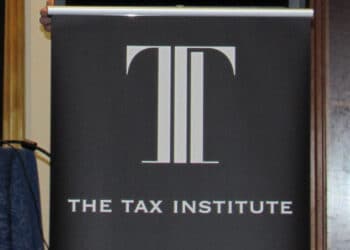Matthew Burgess, director of View Legal, said this rule is inflexible, particularly where a lawyer and other professional advisers are involved as explained in the case of Lewis v Lewis [2020] NSWSC 1306.
“This case involved a son who prepared a will on behalf of his mother,” Mr Burgess said.
“Realising that if he was one of the witnesses he would likely be automatically excluded from taking any benefit under the document (Hill trading as R F Hill & Associates v Van Erp (1997) 188 CLR 159), he arranged for two neighbours to be the witnesses.”
However, when the witnesses arrived he told them his mother had already signed the will and gone to bed.
He also admitted it was not the right way to witness the will, asking the neighbours if they would mind signing it anyway.
“During the hearing when the lawyer was questioned as to why he had knowingly procured false attestations, he arguably did not seem especially troubled,” Mr Burgess said.
“He responded by saying he offered the witnesses a choice and that they could always have refused if they were worried.”
Mr Burgess said the court confirmed its view that the lawyer’s conduct was “completely unsatisfactory and it was grossly improper of him to ask the witnesses to make solemn statements that they had witnessed the willmaker signing the will when in fact they had not”.
The court added that the attempt to deflect blame onto the witnesses was “positively discreditable”.
Ultimately, the court concluded the conduct of the lawyer may have justified referral to the Law Society for consideration of disciplinary action, although it gave the lawyer the right to make submissions against this occurrence.
Although it is not conclusive, Mr Burgess said it seems the lawyer may have been reprimanded, as set out in the decision of The Council of the Law Society of New South Wales v FZK [2023] NSWCATOD 154.
The tribunal imposed a $5,000 fine plus costs and required the lawyer to undertake, complete and pass, at their own expense, within six months of the date of the decision, a Legal Ethics Course approved by the Director of Legal Regulation and achieve a result of not less than 65 per cent.
Additionally, the lawyer had to complete a further course approved by the Director until they achieved the required result.
Mr Burgess added the Tribunal confirmed in reaching its conclusions that its role is to make its assessment of the matter while giving appropriate weight to the parties’ position (see Legal Services Commissioner v Maddock [2021] NSWCATOD 46).
It also said the conduct here would have been inappropriate irrespective of the nature of the document in question, adding that a will is a document of “particular importance and solemnity” reflected by the stringent requirements in respect of its execution and attestation (see Succession Act 2006 (NSW), section 6).
Additionally, the Tribunal noted that any legal practitioner involved in the preparation and execution of a will should have a “heightened sense of focus and obligation to ensure the necessary requirements are observed”.
“The conduct here constituted professional misconduct (as opposed to merely unsatisfactory professional conduct), which was agreed by all parties, at least partly because the lawyer knew the conduct was wrong and involved procuring others to assist, despite that knowledge,” it stated.
In conclusion, the Tribunal said the very nature of a will means that any defect may not be discovered until it is too late for the willmaker to remedy it, meaning their wishes as to the distribution of their estate may not be carried out, at least without potential Supreme Court action.
“This risk should have been obvious to the lawyer, which also added to the seriousness of the conduct,” it stated in its conclusion.
“The conduct was both unsatisfactory professional conduct, and professional misconduct as it constituted a substantial failure to maintain a reasonable standard of competence and diligence.”


